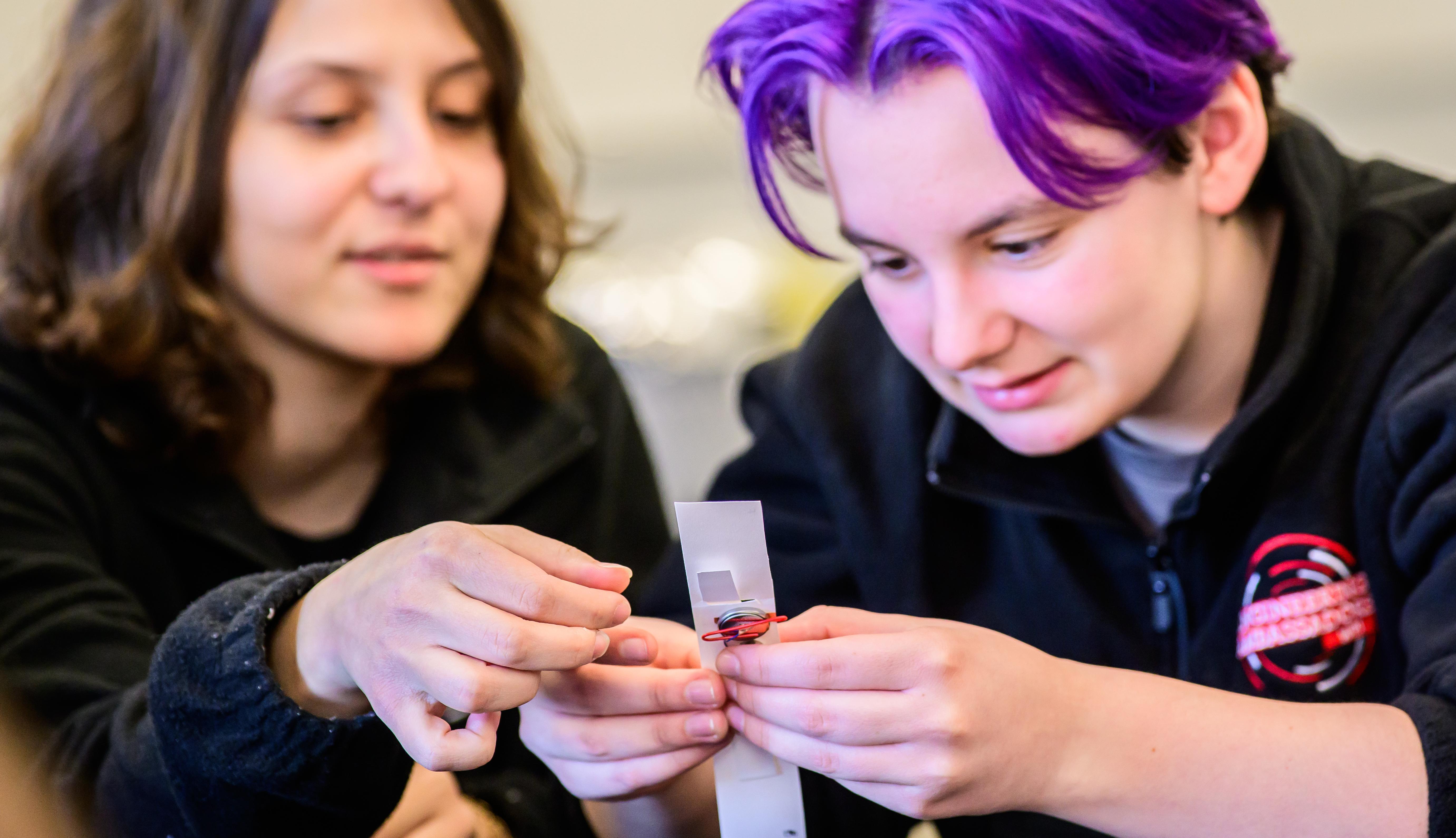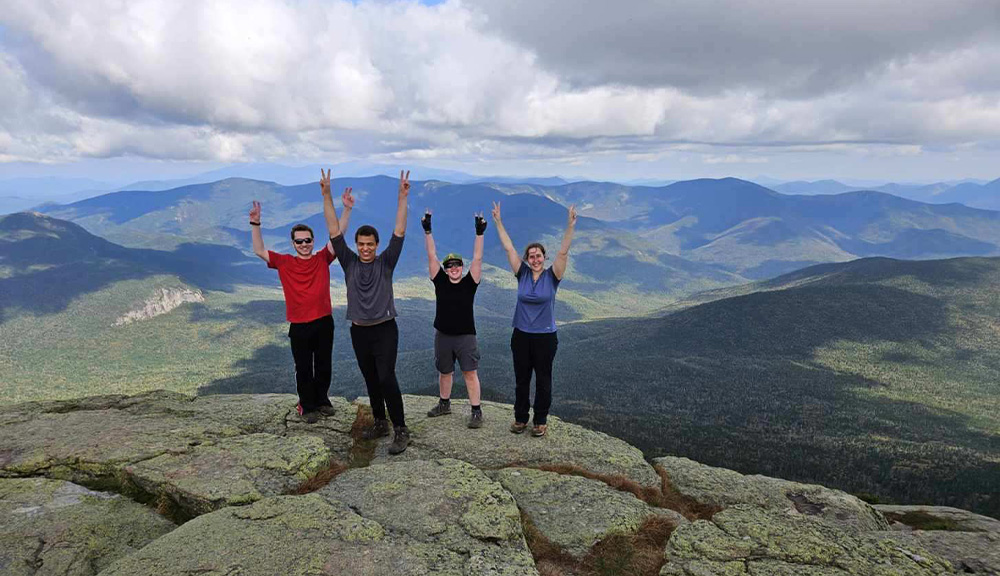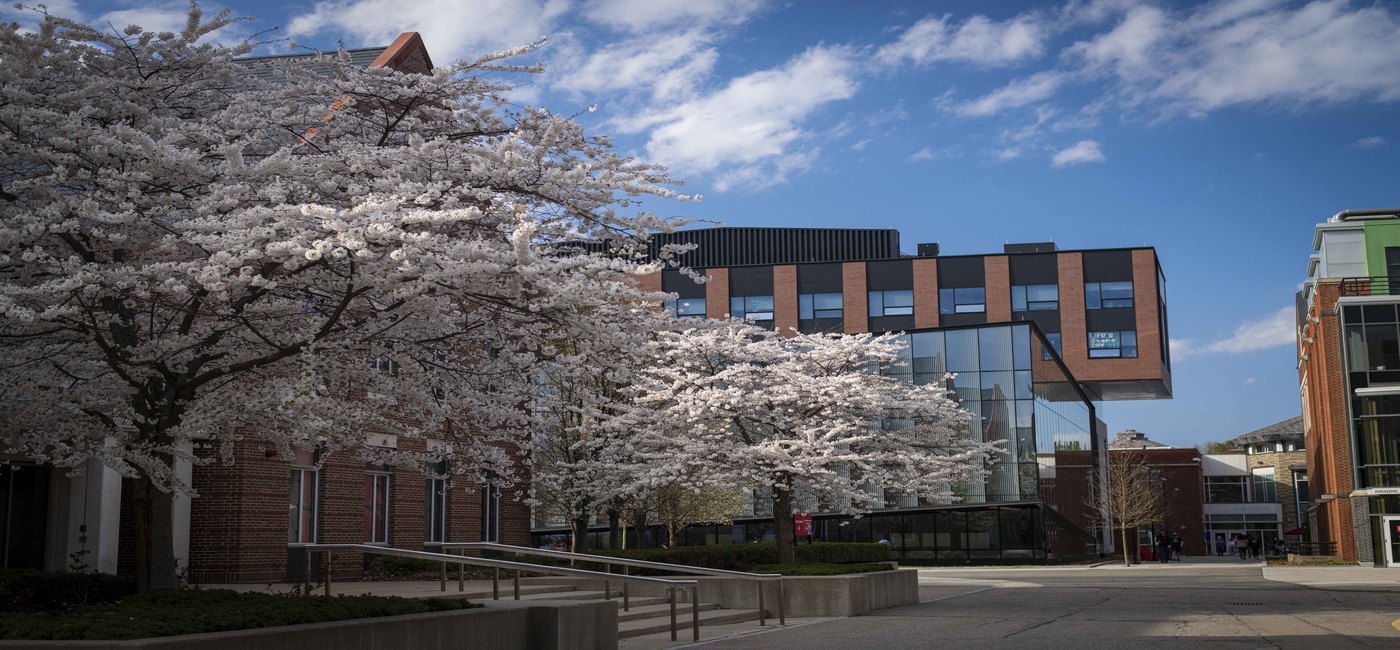When Victoria Carlson ’15, Audrey Allen ’17 and Shelby McQueston ’17 saw aMaking Stuff Wilder IdeaLab flyer about a NOVA workshop on biomimicry (the study of nature’s models that then uses these designs to solve human problems), all three jumped at the chance to be involved – and with a little WPI luck, all have been accepted to this invite-only workshop happening this weekend at Yawkey Theater in Boston.
The Making Stuff Wilder IdeaLab at WGBH, hosted by NOVA and NCIIA, will take place over four days, Jan. 10–13. A total of 10 schools will be represented, including MIT, RISD, and WPI.
This free workshop is part of WGBH’s educational outreach efforts associated with the Making Stuff Series, supported through funding from the NSF and the Dept of Energy. The biomimicry theme is aligned with a “Making Stuff Wilder” episode and will be videotaped for a series of videos and educational resources for the PBS Learning Media digital library.
The workshop begins with a screening of the “Wilder” episode, followed by a panel discussion featuring Marc Raibert, founder of Boston Dynamics; Chris Schmidt, senior producer of NOVA; Dan McCabe, president of Big House Productions; and James Barlow, director of the Entrepreneurial Leadership Program at Tufts. Moderator Paula Apsell is the senior executive producer of NOVA, and director of the NOVA Science Unit at WGBH, Boston
Carlson took a BME Design course in A-Term and was tasked to design a prosthetic hand for an individual in a developing country. “It really intrigued and taught me a lot about design,” she recalls. “Since then, I’ve wanted to pursue a career in design and this NOVA lab opportunity will help me develop my skills in engineering, design, and business.”
Associate dean of undergraduate studies Kris Wobbe was one of the professors who distributed the flyer to students here on campus. “I am delighted to see our students participating in this event and look forward to hearing what they learned,” she says.
According to WGBH’s Rachel Connolly, the overall goal with the IdeaLab workshops is to encourage college students to create and innovate, and through that experience, “capture their experiences surrounding creative thinking and problem solving so that educators can inspire their own students to innovate and design in their own classrooms.”
By detailing this IdeaLab on film, Connolly says, WGBH will produce “educational resources that will expose the messy, creative, exciting process in all its reality to inspire students nationally to innovate through story of the IdeaLab.”


